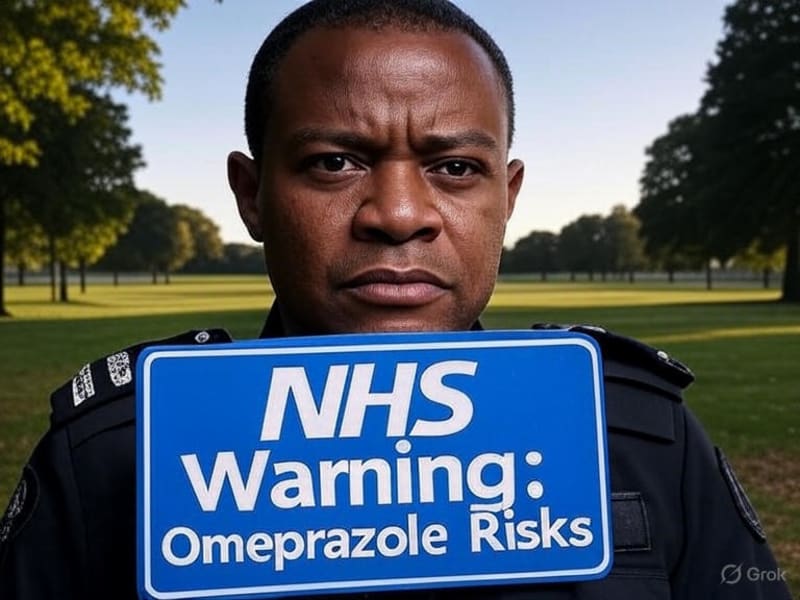London, UK — 27 September 2025— The National Health Service (NHS) has issued a warning today to people currently taking omeprazole, urging them to reassess prolonged use of the drug in light of newly emphasised risks associated with long-term consumption.
Context & Background
Omeprazole is one of the most commonly prescribed proton pump inhibitors (PPIs) in the UK, used to reduce stomach acid production and treat conditions such as gastroesophageal reflux disease (GERD), ulcers, and indigestion. nhs.uk+1
Though generally safe when used for short periods, NHS guidance notes that many patients remain on omeprazole beyond the period originally intended. According to prescribing advice, over-the-counter use should not exceed two weeks without consulting a GP. nhs.uk+1
The warning comes amid growing concern over side effects tied to extended PPI therapy, including increased risk of gut infections, nutrient deficiencies, fractures, and masking of more serious conditions. hweclinicalguidance.nhs.uk+2Drugs.com+2
One NHS prescribing guidance document emphasises that “long term use of PPIs may … increase the risk of developing Clostridium difficile … mask gastric and stomach cancers … increase the risk of broken bones … and reduce the body’s magnesium level.” hweclinicalguidance.nhs.uk
Additionally, specialist pharmacists have raised concerns about possible gut health implications and interference with nutrient absorption, particularly when the body’s acid production is chronically suppressed. Internewscast Journal+1
Statements & Reactions
A spokesperson for the NHS stated:
“We strongly advise that patients review their use of omeprazole, particularly if they have been on it for more than a few weeks. Use beyond two weeks without medical supervision may expose them to unnecessary risk.”
In response, some clinicians expressed support:
“Omeprazole and other PPIs are effective for acid-related disorders, but they were never designed for indefinite use in most patients,” said Dr Helen Marston, a gastroenterologist in Manchester.
“We need to balance benefit against risks, especially in those with milder symptoms.”
However, not all agree. A few patients and advocates warn of rebound acid symptoms when stopping, and say some may need ongoing therapy under specialist supervision.
What Is Confirmed — vs. What Is Alleged
Confirmed:The NHS prescribing guidance does caution against prolonged, unreviewed use of PPIs like omeprazole. hweclinicalguidance.nhs.uk+2nhs.uk+2
Alleged or emerging: Specific high-incidence outcomes (e.g. a direct causal chain to severe disease) remain matters of ongoing clinical study; risk magnitudes vary depending on patient condition, dosage, and duration. Clinicians stress that for many patients with severe GERD or ulcers, continued PPI therapy may still be justified under supervision.
What Patients Should Do (Next Steps)
Patients currently on omeprazole should not abruptly stop unless advised. The NHS recommends:
Consulting a GP or pharmacist to assess whether long-term use remains appropriate
Considering step-down options (reduced dose) or switching to on-demand use if clinically feasible hweclinicalguidance.nhs.uk+1
Monitoring for concerning symptoms such as unexplained weight loss, gastrointestinal bleeding, or persistent severe reflux
Being aware that discontinuation may trigger rebound acid hypersecretion for a short period (usually up to two weeks) hweclinicalguidance.nhs.uk
From a regulatory standpoint, the NHS is expected to review prescribing practices and may issue further guidelines or audits to ensure safer prescribing across trusts.







Comments
No comments yet. Be the first to comment!